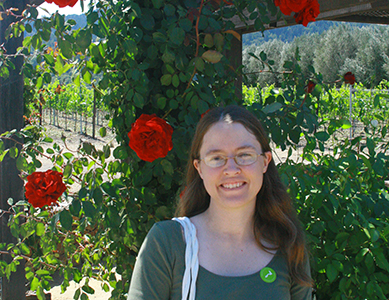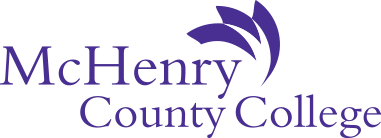Jennifer Carver
2023 Adjunct Faculty Member of the Year

Many people may not think of math as a hands-on activity. But in Jennifer Carver’s classes, that couldn’t be farther from the truth.
Carver, an adjunct math instructor who has been with MCC for over 10 years, ensures her students spend time applying their skills. For their final project, students in her Elements of Math class plan a two-week vacation using graph theory to find the cheapest flights between their destinations.
“They also calculate the money they need to save for their vacation, and organize and analyze sets of items they need to pack in their luggage,” Carver said. “Every piece of the project incorporates the mathematics they’ve learned throughout the semester.”
In her Statistics class, one activity students get to do is design their own probability experiment using marbles in a bag.
“Students often have a hard time understanding probabilities, so I'm always looking for ways to help them grasp the concept better,” she said of the idea.
Carver’s efforts were recently recognized by her peers when she was named MCC’s 2023 Adjunct Faculty Member of the Year. The award recipients are chosen based on their commitment to teaching, contribution to the college community, and professional development.
MCC typically recognizes a Faculty Member of the Year each year, but this is the first time an Adjunct Faculty Member of the Year has been awarded.
“Jennifer is relentless in her pursuit of continuous improvement and in ensuring that her students receive a quality educational experience,” said O’Neil Wright, Dean of Mathematics and Science at MCC. “She has a knack for taking difficult mathematical concepts and breaking them down in a way that all students can understand. She makes math personal and relatable.”
Carver earned her BS in mathematics from the University of Michigan-Dearborn in 2001, then earned her MS in mathematics from Texas A&M University in 2017.
When she began her undergraduate classes, she wasn’t sure what she wanted to study. Because she had tested out of Calculus I, she began by not taking any math classes her first semester.
“I discovered that I missed having a math class,” Carver said. “So I quickly decided my degree should be in mathematics. I did very well in Calculus II my second semester and was hired by the university to be a student tutor. It was during those tutoring hours I discovered my joy of helping others understand mathematics.”
This semester, Carver teaches two sections of MCC’s General Education Statistics course and its co-requisite support course, though she has taught everything from Pre-Algebra through College Algebra and Trigonometry, as well as Elements of Mathematics.
“I have so many favorite parts about teaching,” she said. “The ‘aha’ moment students get when they finally understand a concept; creating projects and activities that help me share the fun of mathematics; helping them see how mathematics applies to their lives. The thing I appreciate about teaching at MCC specifically is the people I teach with. My colleagues have always been supportive and receptive of me and my ideas, and it is with their support that I've been able to develop my courses to better meet the needs of our students.”
Carver has seen many changes and improvements throughout her time at MCC.
“I watched the science center being built and enjoyed some of the earliest shows at the planetarium. I've seen changes to how we approach student support services and tutoring,” she said. “There have been many changes as we've tried to navigate higher education during a pandemic and guessed at what the future of education will look like with greater access to technology. Something is always changing—and that's expected and perhaps even how it should be—if we are always trying our best to meet the needs of our students.”
Carver often has students tell her that they wish they were good at or excited by math.
“When this happens, I ask them what does excite them; what are they interested in? And we often discover that what they are excited about is not something that I'm excited about. And that's the point. Society needs people who are interested in lots of different things. I try to reassure them that it's okay if math is not their favorite subject—that I hope I can convince them it's not as bad as they think—but that society is much better off when people have different interests.”
